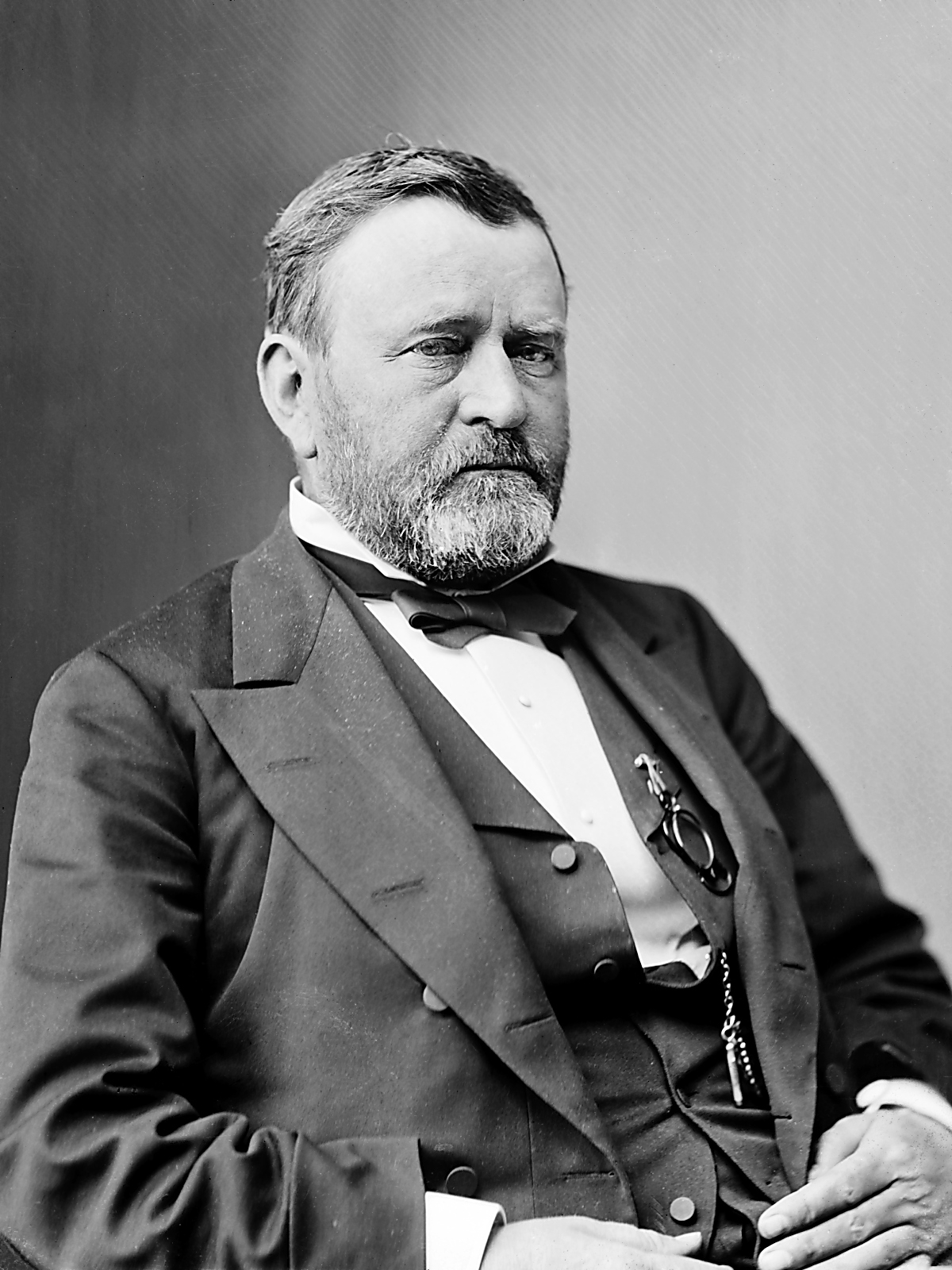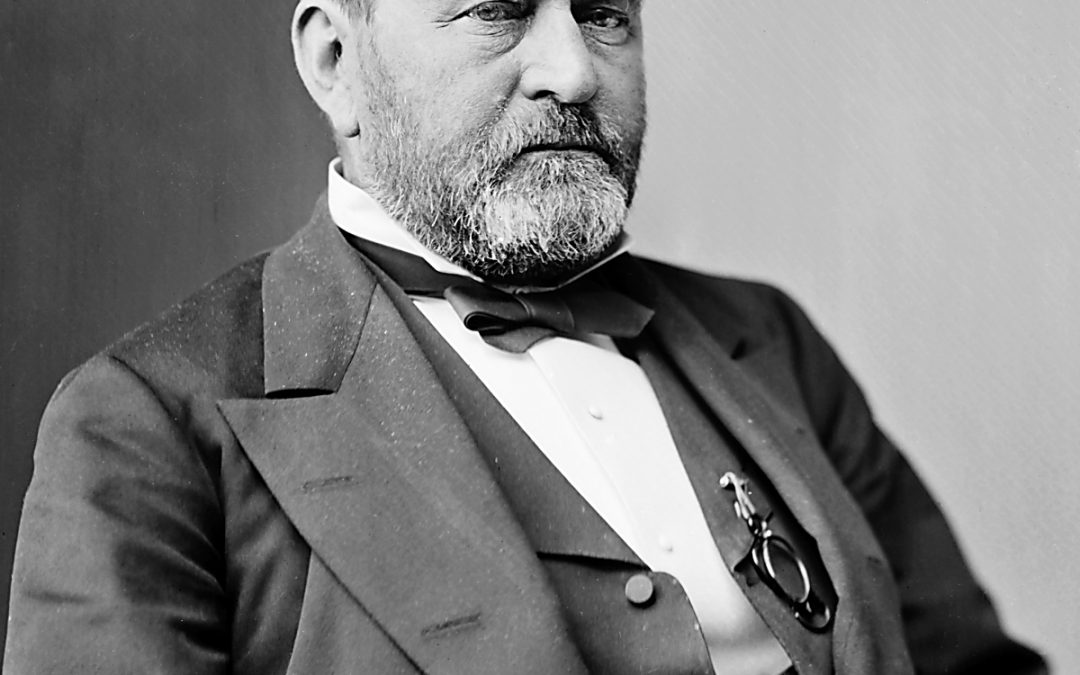
Episode Description:
After hearing about five examples of failed leadership in previous episodes, now we get to pivot to some SUCCESSFUL leadership from the US Civil War, and a chief name is General Grant. Grant was responsible for the turning point campaign in the Western theater of War, at Vicksburg, Mississippi, on July 4, 1863, and in 1864 Lincoln promoted him to fight in Virginia where he took on the masterful General Robert E. Lee. Though brilliant, Lee could not replace his fallen men, but Grant could, so Grant used the “terrible math” to basically bleed the South white and win the war at Appomattox, Virginia, on April 9, 1865. Grant later became a two-term US president and now appears on the $50 bill. Take a listen to see what lessons we can learn from his life and example!
Listen to Episode 32 below.
One of my favorite slogans as a teacher is “All Things are Connected.” In that spirit, I recently asked students in my advanced writing class to listen to this episode about Grant and write an eight-sentence or so summary. I believe being able to digest a body of information, like this episode, and then be able to condense the key points is a crucial skill for success in college and life. I was delighted with how these two young men handled it. Take a look!
Ulysses S. Grant, former US president, was an important figure in the Civil War and under his strong leadership and smart decision-making, the Union was able to triumph over the Confederates. The quick-thinking general was able to win many crucial battles with his meticulous planning, for instance, he was able to capture Vicksburg, Mississippi. This city was important to the Confederates as numerous supplies were obtained through it, as a crucial link to the western states of Louisiana, Arkansas, and Texas. Grant faced a challenge, for this city was surrounded by walls and a river. He took a gamble and decided to float his ships downstream past the city, with all of his supplies and weapons on board. With this tactic, Grant was able to surprise the Confederates and capture Vicksburg and the impact of it was lasting. Not only was this win important to the Union’s eventual victory, the city even went as far as refusing to celebrate July 4th until 1976, due to its embarrassing loss in the Civil War. Grant was also persistent, not to be discouraged by his losses. In contrast to other generals, Grant would not give up and return to Washington DC after a defeat and instead, he would march on. Despite many criticisms towards his character or his presidency, Ulysses S. Grant will forever go down as one of the bravest generals to command during the Civil War.
–Justin in Hsinchu, Taiwan
*******
One of the United States’ most successful generals, Ulysses Grant, not only led the North to victory in the Civil War, but also reunited the country. Born in 1822 in Ohio, Grant was raised under a southern culture because the state was right above Kentucky, which had a distinct southern flavor and remained a slave state throughout the war. Military success ran in his family, as he had a grandfather who fought in the French and Indian War; this may have helped prompt Grant to attend West Point Military Academy at age 16 and serve in the army. After graduation, he went on to become a commander on the western front during the Civil War. After being so successful in his endeavors, such as taking Vicksburg, Mississippi, via Louisiana, Abraham Lincoln decided to relocate him to the East to replace the less competent generals there. However, because the Eastern battles were much more strenuous for both sides, gaining ground proved to be a challenge and a task only for the daring and the willing. As shown through the Wilderness Campaign, many of Grant’s soldiers burned, died, and were forced to retreat into the woods. Yet despite this, Grant decided to continue south instead of returning to DC seeing as they had the numerical advantage. Even after the Battle of Cold Harbor, with thousands of Union soldiers killed, Grant continued marching south and ultimately took Petersburg and trapped the southern soldiers at Appomattox, forcing a surrender from the Confederates.
Eventually, with the support from the people and his story of success, the United States voted him into the presidency. But with a corrupt administration and a lack of political experience, Grant’s time in office was perhaps one of the worst the country has ever seen. He died of cancer on July 23rd, 1885, marking the end of a war hero, or a clueless leader?
–Aaron in Hsinchu, Taiwan
Read more about Grant and Appomattox in this blog post.
***************
Do you want to improve your listening ability? Contact Scott today to see what class you can take to improve that skill!
Have a question or feedback? Maybe a topic you’d like to hear in a future episode? Please email Scott at lifeapppodcast@gmail.com. We’d love to hear from you! If you enjoy our podcasts, please subscribe, write a review, and share them on social media and by word of mouth! Those are GREAT ways to help more people find our podcasts. Please also visit us at www.DreyerCoaching.com; check out the blog posts at the bottom of the page for more information about life in the USA and the crazy English language.

